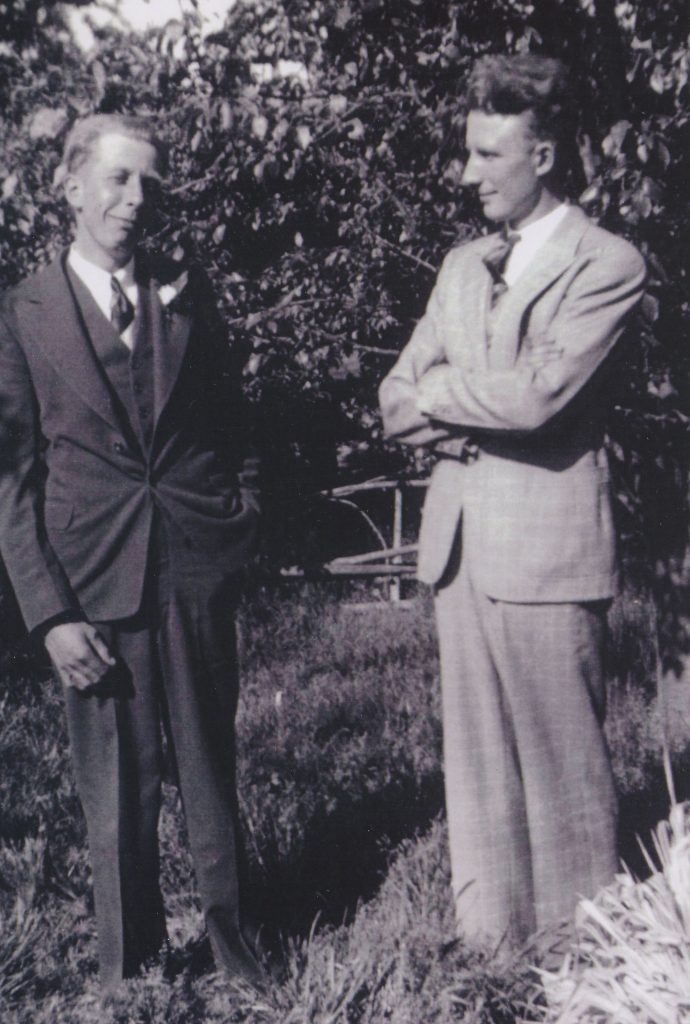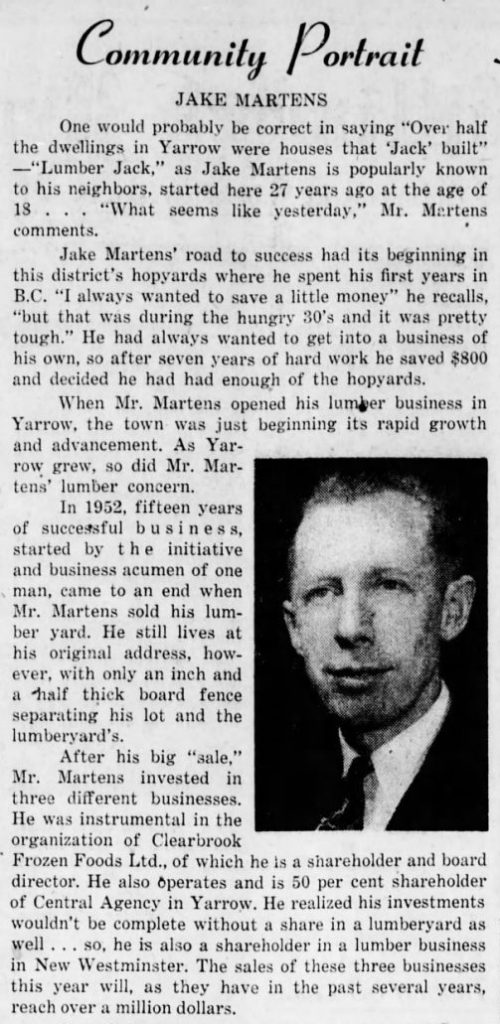Jacob Peter Martens was a prominent Mennonite businessman in the 1940s and 1950s, as well as an active member of the Mennonite church. Jake Martens, or “Lumber Jack” as he was also known, settled in Yarrow in 1930, and began his career in business by establishing Yarrow Lumber in 1937. The lumber yard was started as Yarrow was beginning to expand and his business grew with the high demand for lumber, more successful than any competing lumber companies in the area, and lasted until 1952. He invested in three more businesses and expanded his businesses holdings into Abbotsford and New Westminster, including directing the board of Clearbrook Frozen Foods, Ltd. Martens was a leader in the business community and in the Mennonite church and navigated both cultural communities, bridging the gap between the Mennonite and non-Mennonite communities.

Jake Martens (left) with brother Herb Martens (right). Mennonite Historical Society of BC [120-4-2-2014.011.011]
In the late 1940s, businessmen were viewed with “suspicion” by the Mennonite population. The practices of the group of “business elite” in Yarrow that formed during the 1940s as the community grew were initially regarded by the church as contrary to “Mennonite values.” Men were highly discouraged from going into business, but were rather persuaded to become farmers, preachers, or teachers. Mennonites tended toward communitarian living, while capitalism represented individualism and a departure from this way of life. Martens represents a portion of Mennonites who desired to participate in Canadian culture and society, while maintaining ties with their faith community. In 1948, he acted as a mediator between Yarrow Mennonite Brethren Church leadership and a group of its members who were entrepreneurs when conflict arose over the role of businessmen in the church, and was influential in establishing peace while also legitimizing the place of businessmen within the Mennonite community. Martens later became secretary-treasurer of the church and was the first businessman to serve on the Church council.

Chilliwack Progress, August 28, 1957 (Chilliwack Museum and Archives)
During the 1950s, the mistrust that had existed between church leaders and businessmen began to diminish, and business began to be accepted, which helped Mennonites integrate into the larger Canadian society, as men in Yarrow began to expand and conduct business elsewhere. In the non-Mennonite community, Martens navigated a business world that looked down on Mennonites. However, over time, Martens gained respect through his business dealings and became an influential member of the larger business community. The Community Portrait of Martens in the Chilliwack Progress August 28, 1957 speaks of his success, noting that “Over half the dwellings in Yarrow were houses that ‘Jack’ built.”